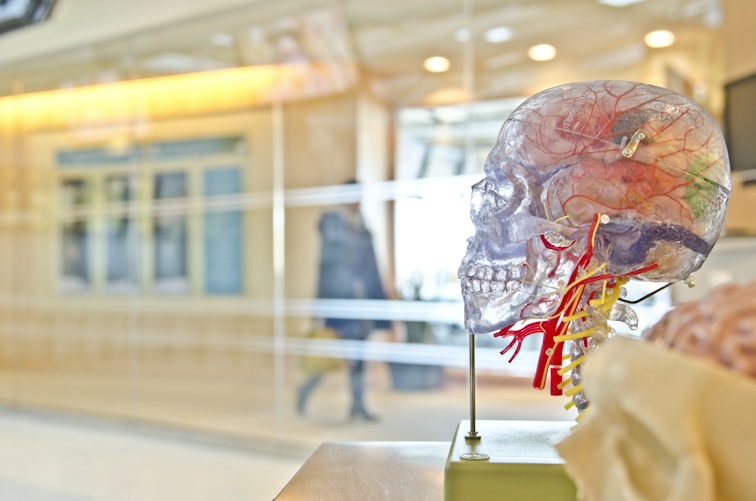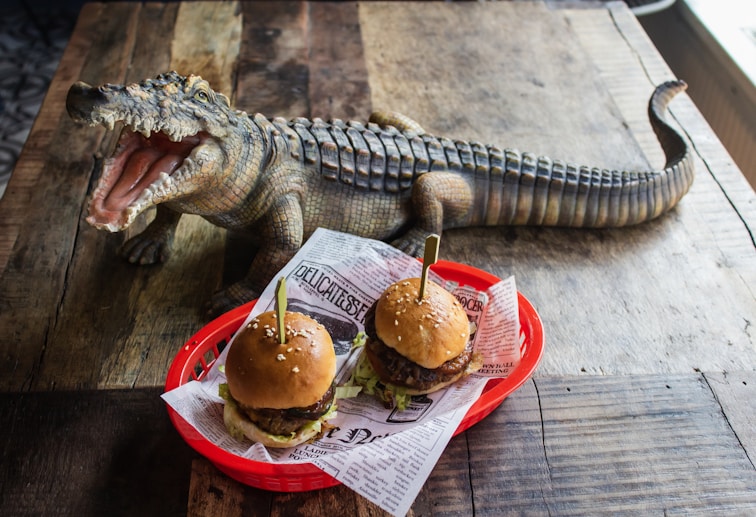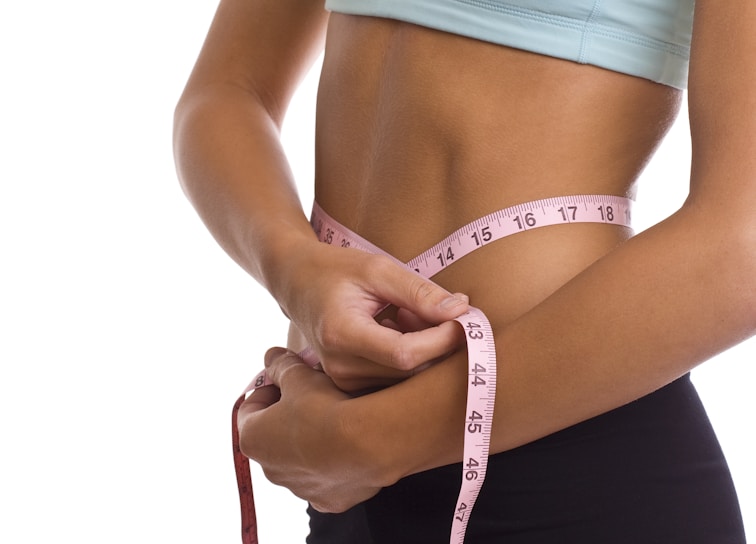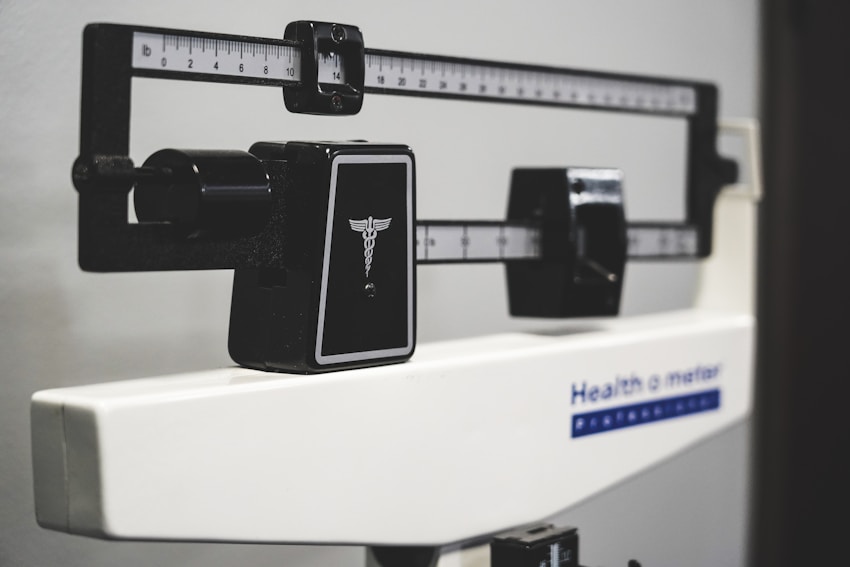The ketogenic diet (keto diet) has tons of health benefits to offer. In this guide, you will discover everything you need to know about this diet.

The keto diet is a popular diet which involves a very high fat and low carb intake. Over 20 studies have found that this diet helps you achieve weight loss and improve your health.
Moreover, it has even some potential benefits against certain types of cancer, Alzheimer’s disease, diabetes, and epilepsy.
What Is Keto Diet?
The keto diet is a very popular high-fat and low-carb diet which has several similarities with other low-carb diets like the Atkins diet.
It involves limiting your carb intake and eating fat instead, which will put your body in a metabolic state known as “ketosis.”
During this metabolic process, your body produces more ketones, which are made by your liver from the fat that you consume and your own body fat, to provide energy for your brain. This happens when there is a limited access to glucose, which is the body’s preferred source of fuel in the form of carbohydrates. Your body becomes highly efficient in burning your fats for energy instead of carbs.
With keto diet comes huge reductions in blood sugar and insulin levels. This diet also leads to an increase in ketones and many other health benefits.
Types of Keto Diets
The keto diet has many different versions including the following.
Standard keto diet. This type of keto diet involves very low carb (5%), moderate protein (20%), and high fat (75%) intake.
High-protein keto diet. This diet is almost similar with the standard keto diet, but with more protein. It usually involves around 5% carbs, 35% protein, and 60% fat.
Cyclical keto diet. This diet involves high-carb refeed periods, like 2 high-carb days after 5 ketogenic days.
Targeted keto diet. In this diet, you are allowed to consume carbs around workouts.
However, only the first two keto diet types, the standard and high-protein keto diets, were extensively researched. The other two keto diets are a more advanced approach and are mainly used by bodybuilders and athletes.
Although many versions of the keto diet have surfaced today, the standard keto diet is the most researched and most recommended one.
Ketogenic Diet for Weight Loss
A keto diet is known for its weight loss effects. Studies have shown keto diet to be superior to the commonly recommended low-fat diet.
Moreover, the keto diet fills your stomach up so you need not count or track your calorie intake to achieve weight loss.
One study demonstrated that people who followed the keto diet lost up to 2.2 times more weight as compared with those on a low-fat, calorie-restricted diet. In addition, people on the keto diet experienced an improved HDL cholesterol and triglyceride levels.
In another research, people on the keto diet lost 3 times more weight as compared with those on the Diabetes UK-recommended diet.
The keto diet is better than a low-fat diet because it allows you to consume more protein which can give a ton of benefits. The increased ketones, improved insulin sensitivity, and lower blood sugar level brought by the diet also play key roles.
Studies On Keto Diet and Weight Loss
There are actually numerous studies that detail the weight loss effects of this high-fat, low-carb diet.
A study by Johnstone published in the American Journal of Clinical Nutrition found that high-protein, low-carb keto diets can potentially reduce hunger and lower food intake more as compared with high-protein, medium-carbohydrate non ketogenic diets.
In addition, another study shows that those people on a very low-carb keto diet achieved a greater weight loss as compared with those on a conventional low-fat diet in the long term. It can be deduced that a very low-carb keto diet can be an alternative tool against obesity.
The best thing about the keto diet is that it can absolutely help you achieve weight loss without getting hungry.
However, further studies on the diet’s weight loss effects are necessary to fully elucidate the potential therapeutic mechanisms and its safety and effectiveness.

Ketogenic Diets for Diabetics
Diabetes is identified by damages to insulin function, higher blood sugar level, and changes in your metabolism.
By following a keto diet, you may lose the excess fat that’s linked to metabolic syndrome, pre-diabetes, and type 2 diabetes.
One study in obese patients with type 2 diabetes who followed a low-carb diet for 2 weeks resulted in a much improved 24-hour blood glucose profiles, hemoglobin A1c, and insulin sensitivity and reduced plasma triglyceride and cholesterol levels. However, the long-term effects of this diet is yet unknown.
A study in 21 people with type 2 diabetes has shown that 7 of them were able to stop taking their diabetes medications.
Another study showed that the keto group lost 24.4 pounds, while the high-carb group lost only 15.2 pounds.
The keto diet can help you lose weight and potentially improve your insulin sensitivity, which can result in significant health benefits with pre-diabetes or type 2 diabetes.
Other Health Benefits of a Keto Diet
Originally, the keto diet was used as a tool to treat neurological diseases like epilepsy. Research suggests that this high-fat, low-carb diet can have huge benefits for other several health conditions.
Heart disease. The keto diet can potentially improve risk factors of heart disease like body fat, blood sugar, and HDL cholesterol levels.
Cancer. A pilot trial found that a keto diet is suitable for even advanced cancer patients and might improve the blood parameters and quality of life in some patients with advanced metastatic tumors. This diet has no severe side effects. In fact, it is now being used to slow down tumor growth and treat types of cancer.
Alzheimer’s disease. The keto diet was also shown to reduce symptoms and slow down progression of Alzheimer’s disease.
Epilepsy. Research shows that a keto diet can be an alternative for non-surgical pharmacoresistant patients with epilepsy regardless of age. But it should be designed individually. Usually, a less restrictive and more palatable diet is a better option for adolescents and adults. Moreover, another research found that this low-carbohydrate and fat-rich diet leads to a massive reduction in seizures in epileptic children.
Parkinson’s disease. A 2016 animal study found that when a keto diet was combined with pramipexole—a drug used to treat Parkinson’s disease—the effectiveness of the drug increased in improving motor function.
Polycystic ovary syndrome. A pilot study demonstrated that a low-carb keto diet led to significant improvement in weight and fasting insulin in women with obesity and polycystic ovary syndrome over a period of 24 weeks.
Brain injury. A 2011 animal study found that the keto diet prevents alteration in brain metabolism in young rats after a traumatic brain injury.
Acne. A keto diet helps improve acne since it involves eating less sugar and processed foods. It also lowers insulin levels.
A keto diet can have numerous potential health benefits, especially with metabolic, neurological, and insulin-related diseases. However, it is noteworthy that studies and evidence in a lot of these areas are far from conclusive. Further research is necessary.
Keto Diet Foods
In keto diets, carb-rich food has to be limited. Below is a list of keto diet foods to help you prepare your meal plan.

1. Meat (e.g., chicken, turkey, red meat, ham, steak, sausage, and bacon)
2. Eggs (pastured eggs or omega-3 whole eggs)
3. Fish (e.g., mackerel, tuna, salmon, and trout)
4. Low-carb vegetables (e.g., asparagus, broccoli, Brussels sprouts, cabbage, cauliflower, celery, onions, tomatoes, peppers, and cucumber)
4. Butter and cream (preferably grass-fed)
5. Unprocessed cheese (e.g., cream cheese, cheddar, goat cheese, blue cheese, or mozzarella)
6. Nuts and seeds (e.g., almonds, walnuts, chia seeds, pumpkin seeds, and flax seeds)
7. Healthy oils (e.g., coconut oil, extra virgin olive oil, and avocado oil)
8. Avocado (e.g., whole avocados)
9. Condiments (pepper and salt)
It would be best to base your diet on whole, single ingredient foods. Make sure to include in the majority of your diet foods like low-carb vegetables, eggs, fish, meat, avocados, healthy oils, nuts, and butter.
What Can't You Eat on Keto?
So what can’t you eat on a keto diet? Here we give you a list of foods that need to be limited or totally eliminated on your diet.

- Sugary foods (e.g., smoothies, ice cream, candy, soda, and fruit juices)
2. Starches or grains (e.g., wheat-based products)
3. Fruit (all kinds except certain berries like strawberries)
4. Legumes or beans (e.g., lentils, peas, chickpeas, and kidney beans)
5. Tubers and root vegetables (e.g., parsnips, carrots, sweet potatoes, and potatoes)
6. Diet or low-fat products (e.g., highly processed food)
7. Unhealthy fats (e.g., processed vegetable oils and mayonnaise)
8. Sugar-free foods as they often contain high sugar alcohols which might affect your ketone levels.
9. Some sauces or condiments as they contain lots of sugar and unhealthy fats
10. Alcoholic beverages
11. Carb heavy foods (e.g., juice, rice, grains, potatoes, sugars, legumes, and even majority of fruits)
Keto 7-Day Sample Meal Plan
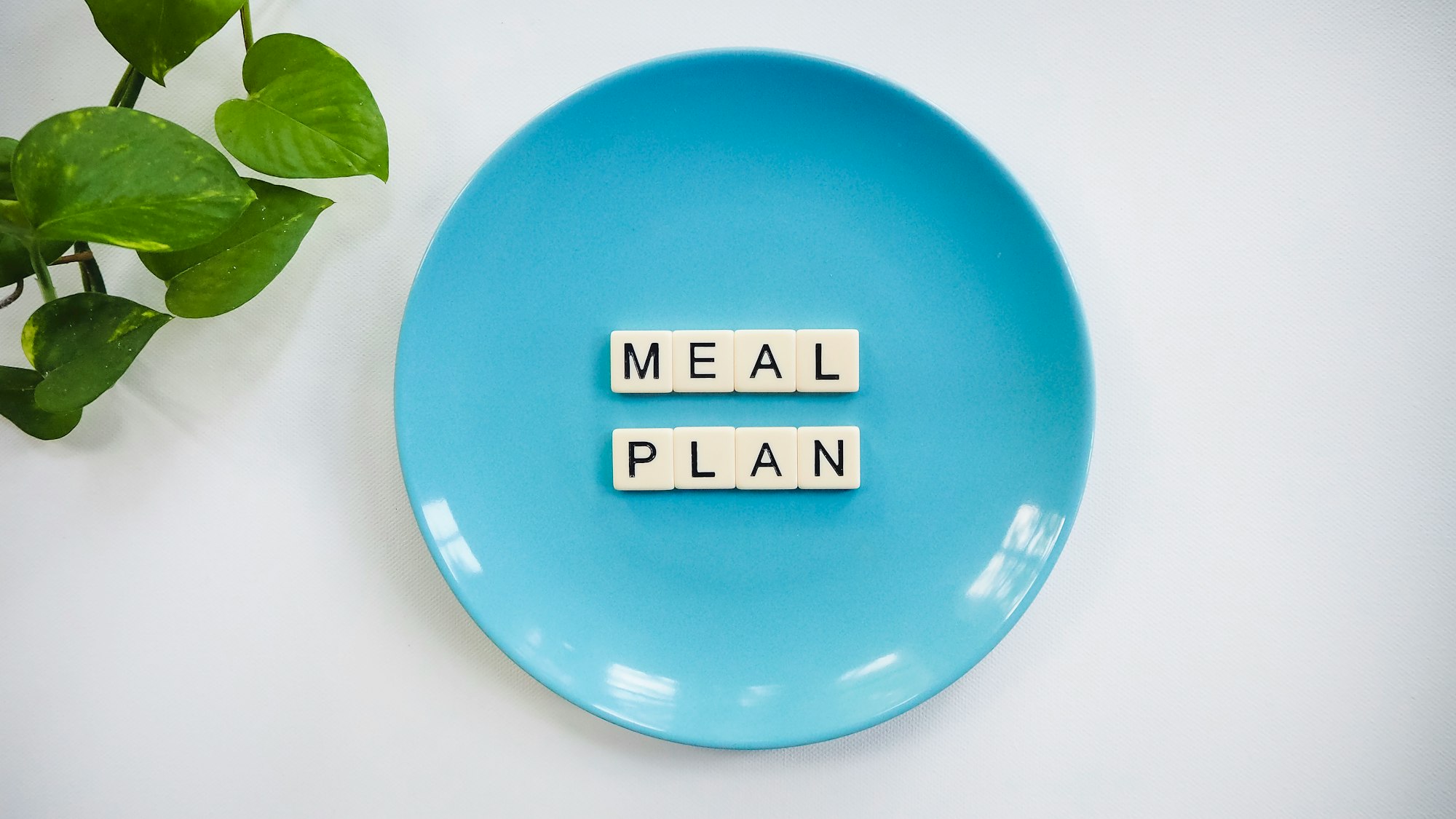
If you want to get started, you can follow this keto 7-day sample meal plan.
Monday
Breakfast : A keto-friendly milkshake
Lunch : Shrimp salad sprinkled with olive oil and vegetables on the side
Dinner : Pork chops and a salad with parmesan cheese on top
Tuesday
Breakfast : Fresh basil, eggs, tomatoes, and a goat cheese omelet
Lunch : Peanut butter, almond milk, a keto-friendly milkshake
Dinner : Meatballs, vegetables, and cheddar cheese
Wednesday
Breakfast : Omelette with salsa and onion with avocado on the side
Lunch : Some nuts and celery sticks
Dinner : Veggies and chicken stuffed with cream cheese and pesto
Thursday
Breakfast : Sugar-free yogurt with cocoa powder
Lunch : Stir-fried beef in coco oil with avocado on the side
Dinner : Bunless burger with bacon, egg, and goat cheese
Friday
Breakfast : Fried eggs with mushrooms
Lunch : Burger with a salsa dip and some cheese
Dinner : Beef steak with a salad on the side
Saturday
Breakfast : A ham and cheese omelet with tomatoes
Lunch : Slices of ham and cheese
Dinner : Spinach stir-fried in coconut oil, seared salmon, and egg
Sunday
Breakfast : Bacon and eggs with vegetables on the side
Lunch : Chicken salad and a keto-friendly milkshake
Dinner : Salmon with buttered asparagus
With keto diet, you can still have a wide range of tasty and nutritious meals. Each variety provides different health benefits and nutrients so make sure to rotate the meat and vegetables for the long-haul.
Healthy Keto Diet Snacks
In case you get hungry in between meals, we got you here tasty and healthy keto diet snacks.
Fatty meat
Fish
Hard-boiled eggs
Nuts
Seeds
Olives
Cheese
Guac
Dark chocolate
Celery with a salsa dip
Strawberries with cream
A low-carb milkshake
Full-fat yogurt with nut butter
Small portions of your recent leftover keto meals
Ketogenic Shopping List
Ideally, a keto diet should include lots of proteins, healthy fats, and fresh produce. It’s best to have a supply of fresh and frozen keto-friendly produce at home when you’re on a keto diet. Here we give you a simple keto shopping list that will serve as your guide when perusing the grocery aisles.
1. Shellfish (e.g., shrimp, scallops, and oyster)
2. Fish (e.g., mackerel, sardines, herring, salmon, and other fatty fish)
3. Eggs (e.g., pastured or omega 3-enriched eggs)
4. Organic, pasture-raised meat and poultry (e.g., beef, pork, chicken, and poultry)
4. Full-fat dairy (e.g., butter, heavy cream, sour cream, and unsweetened yogurt)
5. Avocados (a mixture of ripe and unripe)
6. Oils (e.g., coconut and avocado oils)
7. Fresh or frozen low-carb vegetables (e.g., greens, cauliflower, broccoli, tomatoes, peppers, onions, and mushrooms)
8. Frozen and fresh berries (e.g., blackberries, blueberries, and raspberries)
9. Cheese (e.g., goat cheese, cream cheese, cheddar, and brie)
10. Nuts (e.g., almonds, pecans, macadamia nuts, and pistachios)
11. Seeds (e.g., chia seeds, pumpkin seeds, and sunflower seeds)
12. Nut butters (e.g., peanut butter and almond butter)
13. Condiments (e.g., salsa, herbs, sea salt, pepper, mustard, olives, vinegar, and spices)
Planning your meals ahead of time and filling your cart with the food supply necessary for your diet for a few days is always worthwhile. You also get to avoid tempting and unhealthy foods when you stick to a shopping list.
Eating Out While On A Keto Diet
Ordering keto-friendly restaurant meals is not that hard.
Most restaurants offer fish and meat dishes which are absolutely perfect for your diet. You can order these along with vegetables instead of any high-carb food.
You can also order egg-based meals like a breakfast meal of eggs and bacon or omelets.
Another keto-friendly restaurant meal is the bunless burger, then you can order vegetables instead of French fries. Adding avocado, bacon, eggs and/or cheese is also a great idea.
When you’re in a Mexican restaurant, you can order any type of meat with salsa, sour cream, cheese, and extra guac.
For dessert, you can have a mixed cheese board or berries in cream.
Keto Diet Side Effects
The keto diet is safe for healthy individuals; however, your body may experience some initial side effects while you are adapting to the changes. These side effects are referred to as the keto flu, and they usually go away in a few days.
Symptoms for keto flu include sleep issues, poor mental function and energy, irritability, decreased exercise stamina, increased hunger, nausea, and digestive discomfort.
How to Minimize Keto Flu?
Many keto diet side effects can be limited. To minimize the symptoms of keto flu, you can start with a regular low-carb diet for the first few weeks. This tells your body to burn more fat, instead of carbs, for energy before you totally get rid of carbohydrates. Start slow and ease your way into the diet.
Adding extra salt in your meals or taking mineral supplements is also a good idea because this high-fat, low-carb diet can also change the mineral balance and water balance of your body.
If you’re new to this kind of diet, it’s important to eat until you feel full to avoid too much restriction of calories. A keto diet usually results in weight loss without restricting calories intentionally.
Keto Diet Supplements
Although not required, some supplements can be useful on a keto diet.
Caffeine. Caffeine offers lots of benefits for performance, energy, and fat loss.
Exogenous ketones. Exogenous ketones can increase your body’s ketone levels.
Creatine. Creatine, when combined with exercise, offers huge benefits for your health and performance.
MCT oil. MCT oil provides energy and helps increase your body’s ketone levels. They are usually added to drinks or yogurt.
Minerals. Salt and other minerals can be beneficial when you’re just starting your diet to shift your water and mineral imbalance.
Whey. Whey protein is an ideal supplement when you’re following a keto diet as it preserves muscle mass. It shows promising results for both diabetics and obesity.
Keto Diet Side Effects Long Term
Keto diet can be beneficial for weight loss. In fact, celebs like Halle Berry, Jenna Jameson, and Mama June have touted this diet.
However, this diet, which involves cutting carbs to < 50 grams a day for your body to achieve a state of ketosis, can also have side effects in the long term.
The keto diet has been found to be beneficial in numerous ways: it was found to have anti-inflammatory, anti-aging, and cancer-fighting benefits. However, aside from its unsustainable nature, it can also have some mild to severe side effects in the long run. It can be the opposite of healthy if it’s not done the right way.
So we give you here a few things you need to know before you decide to start off with your keto diet to lose weight. You might actually lose weight, but you should also consider the following complications or side effects it may bring.
1. The Keto Flu
Some people who start achieving the metabolic state “ketosis” reported feeling sick. They can sometimes experience a lot of fatigue, lethargy, gastrointestinal distress, and vomiting. But these symptoms usually last after a few days. This is what happens when your body starts using fat for energy when it runs out of sugar.
These symptoms can be minimized by getting adequate sleep and drinking a lot of water. Incorporating natural energy sources like adaptogenic herbs, organic coffee, or matcha green tea are said to help battle fatigue.
2. Weight regain
Health experts say that the keto diet is not an appropriate long-term diet plan due to its restrictive nature. The diet is best done for only 1–3 months followed by a more sustainable diet plan. However, most people experience weight regain as soon as they go back on carbs. These types of weight fluctuations can only worsen an already unhealthy relationship with food or lead to eating disorders. In many cases, people who experience eating disorders may really need a professional counselor or a lifestyle coach to help them recover from those issues.
3. Diarrhea
The keto diet can also cause diarrhea. This may happen when the gallbladder starts to feel overwhelmed. Or it can also be due to a lack of fiber in the diet which can absolutely happen when a person cuts way back on carbs like pasta and doesn’t supplement with fiber-rich foods like vegetables.
Moreover, diarrhea can also be caused by an intolerance to artificial sweeteners or other things you might be consuming more of as you switch to this fat-rich, low-carb diet.
4. Ketoacidosis
Unless there is a permission or close supervision from a doctor, people with type 1 or type 2 diabetes should not follow the keto diet. This is because ketosis can trigger a dangerous condition called ketoacidosis, which is harmful to people with diabetes.
Ketoacidosis occurs when the body stores up too many ketones, making the blood become too acidic. This can damage the brain, liver, and kidneys. If ketoacidosis is left unmanaged, it can be life-threatening.
Although quite rare, this condition was also reported in people without diabetes who were doing low-carb diets. Symptoms of this condition include frequent urination, nausea, bad breath, a dry mouth, and breathing difficulties. If you experience some of these symptoms while on a keto diet, immediately check in with your doctor.
4. Reduced athletic performance
Aside from weight loss, the keto diet was also believed to improve performance, especially for athletes. However, a recent study found that participants who were following a keto diet performed worse on high-intensity running and cycling as compared with those who were following a high-carb diet. When the body is in ketosis, it is also in a more acidic state. This may limit your body’s ability to do tasks at peak levels.
6. Less muscle mass, reduced metabolism
Loss of muscle mass is another consequence of keto-related weight changes especially if you’re consuming more fat than protein. You might achieve weight loss but it might actually be more of the muscle, which can affect your metabolism.
When people are done with the keto diet and go back to starting weight, it’s often not in the same proportions this time. They are likely to regain fat instead of regaining lean muscle. This can have long-term effects on your metabolic rate and weight.
7. Increased risk of developing diabetes and heart disease
The proper keto diet includes lean sources of animal protein and lots of vegetables. Since this is a high-fat diet, this may raise cholesterol levels especially when done without the guidance of a nutritionist or a doctor.
A study in 25,000 people suggested that people following the lowest-carb diets had the highest risk of dying from cardiovascular conditions, cancer, and all other causes.
Another study also found that those who followed low-carb diets and high-animal proteins (which is typical of the keto diet) had a higher risk of early death as compared with those who eat carbs in moderation.
Keto Diet Weight Loss Success
Despite the keto diet’s possible side effects in the long term, many people still have their success stories to share.
Maggie's Success Story
A 31-year-old Maggie started following the keto diet with 218 lb. She’s a video editor by trade. She struggled with binge eating since she was in high school, but didn't start gaining weight until she was in her 20s.
She’s aware that her binges are a combination of eating a high-carb diet and the binge habit that she has ingrained in her daily routine. She suffered from the binge/purge cycle in that she binges eat. She hated herself for that. She’d attempt calorie restriction or cardio and then binge again because of the restriction. She has mostly recovered from her eating disorder when she read the book by Kathryn Hansen titled “Brain Over Binge,” but still mindlessly overeat, preventing her from losing weight.
In 2012, she got in great shape, 145 lbs weight plus muscle, for her friends’ weddings. She did a typical bodybuilding program and "clean eating" diet. Although typical, the program was very time consuming. She ate 6+ meals a day and spends almost 2 hours in the gym 6 days a week. The lifestyle was unnatural for her that it even caused her a great deal of stress throughout the process.
Her digestion suffered and most of her time was spent timing and calculating her meals. Although she loved seeing the results, she suffered anxiety every time she missed a workout or ate something that wasn’t included on her meal plan. After her friends’ weddings, she crashed back into binge eating, which caused her to gain 70 pounds in just 2 years. She constantly struggled to get back into that lifestyle, but she didn’t lose weight.
With keto diet, she experienced weight loss and her digestive issues have vastly improved. The reduction of bloat in her stomach made a huge difference on how she feels and looks. She also noticed that her skin issues have improved. She noticed a reduction of bumps on her arms and haven’t had any issues with hives or any other allergies.
Aysia's Success Story
Aysia is a public figure who has low self-esteem because of her weight. She continued on hiding behind her weight until 2017. She decided to write her first post sharing her experiences on rejection and abandonment. It was an anonymous place for her to write notes to herself that grew beyond what she could ever imagine. Her battle with major depression has led to extreme weight gain. Because of that, she has turned down many speaking engagements throughout the United States. She was one of the many individuals affected by mental illness.
Her postpartum depression developed into a major depression, believing that it wasn't an illness but rather a state of mind. As her illness progressed, food became her prescription of choice. She has understood the connection of having good health mentally and physically.
Discovering the keto diet has allowed her to acknowledge that mental health was only a part of her battle. She realized the importance of being physically and mentally healthy.
The keto diet has given her the tools and support to give 100% and to remain focused while battling mental illness and bad habits. Her self-esteem and confidence have surfaced again.
Jay's Success Story
A 41-year-old Jay recently retired from the Air Force and has seen his weight increase over 30 pounds in just 7 months, so he looked for ways to get his weight under control. With high blood pressure, he knew he should be in much better health. With the hopes of getting his blood pressure levels back to normal, he decided to commit to an overall healthier lifestyle with the keto diet.
The keto diet has helped him reach his short-term goal of losing at least 25 pounds in a period of one month. He tried many diets in the past but didn’t experience the type of success he had with the keto diet.
Conclusion
The keto diet is an amazing way to lose weight and feel great. Good luck in accomplishing your G.O.A.T. health goals. We're here cheering you on!

READY TO GIVE KETO A TRY? WAIT!
You are not being told about many of the most important keto breakthroughs being discovered by leading doctors and medical research centers.
There’s no big conspiracy.
It’s just that these breakthroughs usually don’t get much publicity.
That’s because they’re reported in medical journals intended for doctors such as The New England Journal of Medicine… The Journal of the American Medical Association… Lancet… The American Heart Journal… among many others.
Or; in some cases, these discoveries are made in prestigious health centers in other parts of the world, and receive little or no coverage in the US media.
In still other cases, highly respected medical doctors uncover these breakthroughs in clinical studies in their own private practices. They report their findings to professional medical societies, but these discoveries often escape the notice of the mass media.
All of this leaves gaping holes in the health information you should be getting. Yet these “under-reported” discoveries can be of tremendous importance to you and those you love.
That’s why we created My Health G.O.A.T. (Greatest Of All Time).Until My Health G.O.A.T. came along, if you wanted to try to keep on top of new keto developments and scientific keto breakthroughs, you would have to subscribe to a shopping cart full of professional medical journals and newsletters.
And you’d have to spend a king’s ransom for the privilege!
You might also have to get a medical degree to understand many of the articles. But now that’s changed, thanks to My Health G.O.A.T.
Here are our top 12 articles you can read right now that will help give you a shortcut to success during your keto journey to weight loss:

